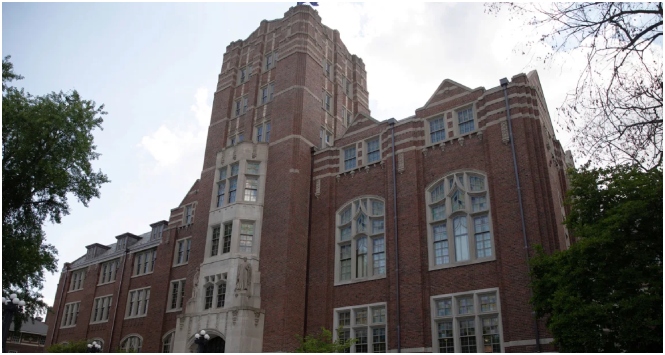Rachel Dawson, a diversity administrator at the University of Michigan, has been terminated following allegations that she made anti-Semitic remarks, including stating that Jewish students are “wealthy and privileged” and do not require support.
The controversy has sparked broader debates about inclusivity and anti-Semitism in higher education.
Allegations Unearthed by FOIA Request

The accusations against Dawson, who oversaw multicultural initiatives at the university, surfaced through a Freedom of Information Act request obtained by The New York Times.
During a March conference, Dawson allegedly claimed that the university was “controlled by wealthy Jews” and that Jewish people lacked “genetic DNA that would connect them to the land of Israel.”
The allegations led to a complaint from the Anti-Defamation League of Michigan, prompting an external investigation by a law firm.
While the investigation could not conclusively verify the remarks due to a lack of recorded evidence, the claims nonetheless fueled significant backlash.
Dawson, through her attorney Amanda Ghannam, denied the allegations, calling her termination “deeply troubling.” Ghannam argued that Dawson’s firing over an unverified private conversation set a dangerous precedent.
University’s Response and Broader Context
The University of Michigan declined to comment on the specific case but has faced mounting pressure to address anti-Semitism amid a national rise in campus protests related to the Gaza conflict.
Mark Bernstein, a member of the university’s board of regents, criticized the initial handling of the allegations, asserting that failure to hold Dawson accountable would undermine the university’s commitment to combating anti-Semitism and fostering diversity.
DEI Policies Under Scrutiny
The incident highlights ongoing debates over diversity, equity, and inclusion (DEI) policies in higher education. The University of Michigan, previously labeled “the wokest university in America,” has spent over $250 million on DEI initiatives since 2016. However, the board recently eliminated requirements for staff to address diversity in job applications, reflecting a shift in approach.
Critics of DEI programs argue that they often marginalize Jewish students while prioritizing support for other ethnic and racial minorities. Dawson’s role had focused on mentoring and retention programs for students from diverse racial, cultural, and economic backgrounds.
Impact on Campus Climate
The controversy has reignited conversations about the balance between promoting inclusivity and addressing anti-Semitism.
Pro-Palestinian graffiti recently appeared on a board member’s home, underscoring the tense atmosphere on U.S. campuses regarding Middle Eastern geopolitics and its implications for students.
